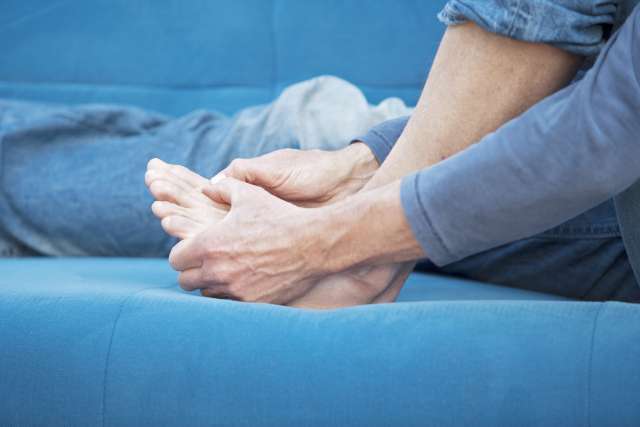Dear Doctors: I would like to know more about peripheral neuropathy. It seems like it's pretty common, especially as you start getting older, but you never hear much about it. Why does someone get peripheral neuropathy? Are there drugs or treatments that can cure it?
Dear Reader: Peripheral neuropathy, sometimes referred to simply as neuropathy, refers to the symptoms that can arise when certain nerves in the body become damaged.
As the name indicates, the condition involves the peripheral nervous system. This is the vast neural network that allows the body to communicate with the spinal cord and the brain. These nerves are involved in physical sensation, the control of movement and involuntary processes such as bladder function, digestion and blood pressure regulation.
A number of diseases and conditions can lead to someone developing peripheral neuropathy. It can also be a side effect of some medical treatments. A common cause of the condition is Type 2 diabetes, particularly when it goes unmanaged. This occurs because chronically high blood glucose levels can damage the capillaries, including those that nourish the nerves and keep them healthy.
Additional causes can include physical injury or trauma, chronic inflammation, alcoholism, autoimmune diseases, chemotherapy drugs, certain medications, smoking, nutritional deficiencies, toxins and inherited conditions. Sometimes, a cause cannot be determined. This is known as idiopathic neuropathy.
Symptoms of the condition can include numbness; sensations of tingling, prickling or burning; difficulty discerning hot or cold temperatures; a dulled pain reflex; and a loss of spatial awareness of the hands or feet, which can lead to difficulties with balance. When the motor nerves are affected, muscle cramps, twitching and muscle weakness or wasting can occur.
When the autonomic nervous system is affected, the involuntary processes that it oversees can be adversely affected. This can include sudden changes to blood pressure, excessive sweating, rapid heartbeat, sexual dysfunction and poor bladder or bowel control.
You're correct that peripheral neuropathy is seen more often in older adults. The condition is estimated to affect between 8% and 10% of people over the age of 50. However, it's not a direct result of the aging process. Rather, it is because older adults are at increased risk of developing the diseases or conditions or undergoing the medical treatments that can lead to neuropathic pain.
In cases where the cause is not evident, diagnosis begins with a medical history. It typically also includes a neurological exam, tests to measure muscle strength and blood tests, and also may include nerve biopsy, diagnostic scans such as an MRI and genetic testing.
Treatment focuses on managing the specific disease or condition that is believed to be the root cause. For someone living with diabetes, for example, that would be diet, medication and behaviors to manage blood glucose levels. For anyone who uses tobacco products, which constrict blood vessels and decrease available oxygen, quitting is imperative.
Depending on the parts of the body affected, physical therapy, supportive footwear, neurostimulation, acupuncture and certain medications may be used. Lifestyle changes, such as regular exercise, maintaining a healthy weight and limiting alcohol, can also play an important role in treating this condition.
(Send your questions to [email protected], or write: Ask the Doctors, c/o UCLA Health Sciences Media Relations, 10960 Wilshire Blvd., Suite 1955, Los Angeles, CA, 90024. Owing to the volume of mail, personal replies cannot be provided.)





